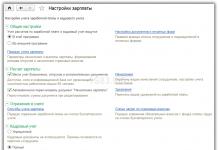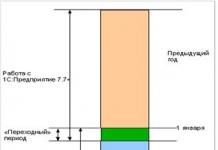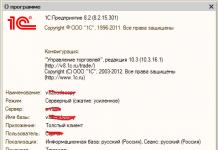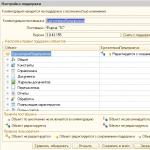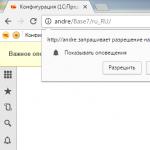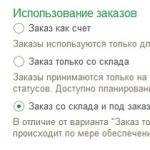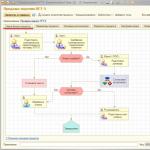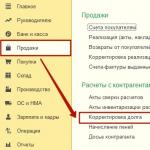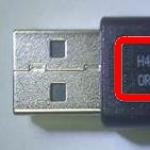The modern world is characterized by a rather striking trend towards the use of everything Americanized, non-Russian: individual lessons are being replaced coaching, instead of changes occurs rebranding, and teachers and educators become tutors. The last trend - in the field of education - is especially interesting: the first two words have taken root in the business sphere, but getting used to the tutor Marya Ivanovna is somehow more difficult. Hence, let's try to determine who is a tutor and how different is he from a teacher?
Word "tutor" came to us from language Shakespeare, Burns, Milton and Defoe and is essentially a "reading" of the original word tutor. The purpose of the tutor is a high-quality provision and support of individual training of pupils and students. In other words, tutor is a personal curator for each of the students: he controls the schedule, helps to clarify organizational issues and in every possible way directs and instructs his ward. In our education system tutor- "acquisition" is quite new, recent, but in America and Europe, tutoring is a common practice, a fairly successful and active pedagogical position.
It is a mistake to think that the tutor "came" to us from the 20th century. On the contrary, the phenomenon of tutoring as a neoplasm in the field of education originates in European universities of the XIV century: in Oxford and Cambridge The tutor was perceived as a mentor. This time was characterized by significant liberalism in terms of education: students were essentially not assigned to a particular university, they could “flow” from one course to another, and also listened only to those cycles that they themselves preferred. The university limited students only to the requirements for examinations, but the method and means by which excellent knowledge of the subject would be achieved remained on the conscience of the student and his tutor.
Tutor considered as an intermediary between the university in the person of the professor and the student in the person of the same. This mediation was vital for both sides, because. most valued at the time freedom, and it is difficult for a free professor to catch an equally free student and vice versa. Therefore, the tutor performed an important and necessary function for his time: he adapted the learner's personal preferences to the learner's requirements. In addition, the tutor had another important task: he supervised the student's self-education process.
With 17th century The tutor acquires more and more educational functions, becoming the student's main "guide" through the thorns of the educational process: he advises the student which courses to attend, helps him draw up an individual lesson plan and solve problems. Exactly at XVII century tutoring became an official teaching "institution" and established itself as an integral part of the English educational system: the tutor not only guided the student and helped him, but also prepared him for the exams.
Now there are often disputes about the justification for introducing the institute of tutoring. In essence, a tutor is the same teacher, but not everything is so simple. The teacher - in our system - is focused on a group of students, because it is not always possible to apply an individual approach due to the lack of an appropriate methodological base, the limited time of the lesson, the heavy workload on the teacher, etc. A tutor is a teacher of educational, social and psychological “orientation”, if I may say so. The teacher teaches and educates tutor teaches, controls, accompanies, helps, adapts and others. In other words, when developing individually oriented education, the tutor  imaginary figure. Tutor - and psychologist also: it helps the pupil / student to decide on preferences, with the direction of creative or research activities, etc., helps to cope with difficulties in the process of obtaining an education. In other words, a tutor is the one who organizes the most comfortable conditions for the realization of the student as a person.
imaginary figure. Tutor - and psychologist also: it helps the pupil / student to decide on preferences, with the direction of creative or research activities, etc., helps to cope with difficulties in the process of obtaining an education. In other words, a tutor is the one who organizes the most comfortable conditions for the realization of the student as a person.
After analyzing the material presented, we come to the conclusion that tutoring is not such a populist concept, if we consider the concept of “tutor” in a volume and full way, then we can come to a radically new project of the educational process based on the formation and development of a person as a person in conditions of mutual understanding and support.
blog.site, with full or partial copying of the material, a link to the source is required.
To use the preview of presentations, create a Google account (account) and sign in: https://accounts.google.com
Slides captions:
Tutoring support for the innovative development of educational institutions
And who is the tutor? Tutor - "tutor" in translation from English - a teacher-mentor. The etymology of this word (lat. tueor - to take care, protect) is associated with the concepts - "protector", "patron", "guardian".
And who is the tutor? A tutor is a teacher-mentor who is able to provide social and pedagogical support for students in choosing and passing by them individual educational trajectories
And who is the tutor? A tutor is the one who accompanies the process of mastering a new activity (from the book "Tutorship as a new profession in education" of the School "Eureka - Development")
And who is the tutor? A tutor is a teacher who acts on the principle of individualization and accompanies the construction of an individual educational program by students (T.M. Kovaleva, Doctor of Pedagogical Sciences, developer of qualification characteristics, president of the Interregional Public Organization "Interregional Tutor Association").
WHERE, WHEN AND WHY IS TUTORING ARISING?
WHAT IS TUTORING SUPPORT?
Accompaniment is a specific action; To accompany means to accompany, to go along, to be near and to help. Tutor support is the support of the process of individualization in open education.
HOW DOES THE ACTIVITY OF A TUTOR DIFFER FROM THE ACTIVITY OF A TEACHER, CLASS TEACHER, EDUCATIONAL PSYCHOLOGIST?
Individual approach: work with a real person (diagnosis, correction, single result) Individualization: work with a possible person (creation of an environment, opportunities, personal result)
The class teacher organizes the interaction of schoolchildren united in the class The tutor works with cognitive interest, accompanies the implementation of the individual educational program The psychologist works with the development of mental processes The teacher Sets the norms: content, route, pace of work
Directions of tutoring in Russian education: Distance learning; Psychological service - coaching; Consulting work; Tutoring at school: in primary, senior, secondary, higher; Tutoring in the system of advanced training.
Approaches to tutoring: Junior school: identification, understanding and implementation of cognitive interests; Secondary school: project, research, spontaneous creativity; Senior school: tutor support in a specialized school; Additional education.
WHAT TECHNOLOGIES ARE WE TALKING ABOUT WHEN WE TALK ABOUT TUTORING SUPPORT TECHNOLOGIES?
Open education technologies in the work of a tutor Debate Critical thinking Portfolio Socio-cultural technologies Educational travel Project and research activities Case studies
WHAT CAUSES THE NEED TO INTRODUCE TECHNOLOGIES OF TUTORING SUPPORT OF STUDENTS IN PRACTICE IN EDUCATIONAL INSTITUTIONS?
Tutor support technologies allow solving the tasks proposed in the national educational initiative "Our New School", by Orders of the Ministry of Health and Social Development of the Russian Federation of May 5, 2008 No. 216n and No. 217n (registered with the Ministry of Justice of the Russian Federation on May 22, 2008 No. 11731 and No. 11725, respectively) approved professional qualification groups of positions of employees of general, higher and additional professional education, including the position of tutor.
WHAT SHOULD BE DONE TODAY AGAINST THE LACK OF GRADUATED SPECIALISTS?
The world is changing continuously and hastily Everything is changing - from concepts to words And only he will be able to remain successful Who is ready to change along with the world! Thank you for your attention!
Preview:
Over the past ten years, the number of publications on tutoring has increased manifold. In such a situation, the attitude to the problem traditionally has a triple character: “tutoring is complete nonsense”, “there is something in tutoring” and “who doesn’t know what tutoring is”
WHO IS A TUTOR?
Tutor - "tutor" in translation from English - a teacher-mentor. The etymology of this word (lat. tueor - to take care, protect) is associated with the concepts - "protector", "patron", "guardian".
“The Modern Oxford English Dictionary defines a tutor as a person holding a degree who is entrusted with the supervision of an undergraduate. The latter is called his ward (pupil)."
“... a teacher-tutor in the current situation of a classical European university conducts weekly individual consultations - tutor hours and regular tutorials - classes in mini-groups consisting of 5-7 students. According to modern researchers, most of the study time (from 75% to 90%) at Oxford and Cambridge universities is devoted to classes with a tutor.
A tutor is a teacher-mentor who is able to provide social and pedagogical support for students in choosing and passing by them individual educational trajectories
A tutor is the one who accompanies the process of mastering a new activity (from the book "Tutorship as a new profession in education" of the School "Eureka - Development")
A tutor is a teacher who acts on the principle of individualization and accompanies the construction of an individual educational program by students (T.M. Kovaleva, Doctor of Pedagogical Sciences, developer of qualification characteristics, president of the Interregional Public Organization "Interregional Tutor Association").
WHERE, WHEN AND WHY IS TUTORING ARISING?
Tutoring arises where and when there is a need and necessary conditions for the transition to variability and individualization of educational programs. It can be a mass general education school, a lyceum, a gymnasium, an additional education institution, a kindergarten, a college, a university, a system of advanced training, a family, etc.
WHAT IS TUTORING SUPPORT?
To accompany means “to accompany, go together, be near or help” (from the dictionary of V. Dahl).
Tutor support is a special type of humanitarian pedagogical support.
Pedagogical support is understood as such an educational interaction, during which the student performs an action according to previously known norms, and the teacher creates conditions for the effective implementation of this action. Cultural norms are known in advance.
In the situation of tutor support, the pedagogical focus is shifted towards the independent development of norms acceptable for a given individual, which are discussed with the tutor. In order for tutor support to be carried out, the student must himself make some kind of “educational test”, the results of which will be the subject of joint analysis.
HOW DOES THE ACTIVITY OF A TUTOR DIFFER FROM THE ACTIVITY OF A TEACHER, CLASS TEACHER, EDUCATIONAL PSYCHOLOGIST, SOCIAL TEACHER?
Tutoring is based on the principle of individualization, which determines all the techniques and methods used by the tutor. In modern education, this concept is often confused with an individual approach to education.
Individual approach: work with a real person (diagnostics, correction, single result)
Individualization: working with a possible person (creating an environment, opportunities, personal results)
The main tool for training, education and the basic functional duty of a teacher-tutor is the creation of an individual educational program, which is constantly refined and adjusted. Changes are made depending on the joint analysis of the success and progress of the student on the path of mastering knowledge.
The core concept of such pedagogy is the uniqueness of the human personality, its purpose (including professional) and the individualization of education associated with this.
And from here, different tasks and functions:
- The teacher, coming to the lesson, has and realizes his educational interests and goals, and the tutor moves from the interests of the students, helping him to realize his goals. The teacher sets the norms, content, route and pace.
- The teacher-psychologist works in the direction of studying and developing the mental processes of schoolchildren.
- The class teacher organizes the interaction of students united in the class.
- The tutor works with a cognitive interest, accompanies the implementation of individual educational programs.
The main directions of tutoring in Russian education: (on the slide)
- Tutoring in primary school is focused on the specifics of tutor support in the transition from preschool to primary education, on creating conditions for the emergence of educational initiatives among first-graders, on an individual educational program in primary school.
- Tutoring in a teenager's school is based on the technologies of analytical and project work, on the school of individualization of education, on tutor support of a student's self-education, on the organization of a space for tutor support of a teenager in a public school.
- Tutoring in high school is based on the formation of the research competence of a high school student, on the organization to form an image of the future as a way of psychological support for the individual trajectory of high school students, on tutor support as an opportunity for the effective implementation of pre-profile training and specialized education.
WHAT TECHNOLOGIES ARE WE TALKING ABOUT WHEN WE TALK ABOUT TUTORING SUPPORT TECHNOLOGIES?
Tutor support technologies - technologies that help the tutor organize work with the personal interest (need) of the student and the translation of the individual interest of the ward into the initiation of a specific activity, which is possible either as an educational or social test of the student. These tasks are effectively solved with the help of open education technologies (design technologies, research methods, debates, educational tourism, portfolio, development of critical thinking in reading and writing, creative workshops, case studies, open space technologies (TOS), sociocultural games, Robinsonade and etc.).
But the tutor's arsenal should have a whole package of technologies that are actively used in educational psychology (question-answer technologies, reflective session technologies, active listening technologies, moderation technologies, etc.). However, the tutor's key tool is the question and the tutor's ability to work with it.
The peculiarity of tutor technologies also lies in the fact that they allow the tutor to strengthen the individual resource of the ward with external (social) resources, that is, the tutor becomes a kind of “intermediary” between the ward and the possibilities of the “world”, “society”.
WHAT CAUSES THE NEED TO INTRODUCE TECHNOLOGIES OF TUTORING SUPPORT OF STUDENTS IN PRACTICE IN EDUCATIONAL INSTITUTIONS?
The need to introduce technologies for tutor support of students in the practice of educational institutions is due to the following reasons:
1. Tutor support technologies allow solving the tasks proposed in the national educational initiative “Our New School”, which implies “constant renewal, individualization of demand and opportunities to meet it” within the framework of the formation of a fundamentally new system of continuous education. At the same time, the key characteristic of such education is not only the transfer of knowledge and technology, but also the formation of creative competencies, readiness for retraining”, “the ability to learn throughout life, to choose and update a professional path”. “Children should be involved in research projects, creative activities, sports events, during which they will learn to invent, understand and master new things, be open and able to express their own thoughts, be able to make decisions and help each other, formulate interests and recognize opportunities. “An important task is to strengthen the educational potential of the school, to provide individualized psychological and pedagogical support for each student.
2. Orders of the Ministry of Health and Social Development of the Russian Federation of May 5, 2008 No. 216n and No. 217n (registered with the Ministry of Justice of the Russian Federation on May 22, 2008 No. 11731 and No. 11725, respectively) approved professional qualification groups for positions of workers in general, higher and additional professional education, including, tutor position.
WHAT SHOULD BE DONE TODAY AGAINST THE LACK OF GRADUATED SPECIALISTS?
In the modern education system today, we are talking, first of all, not so much about teachers officially working in the position of "tutor", but about teachers with tutor competencies, that is, who own tutor support technologies.
And hence, the main task of the advanced training system today is to assist teachers in forming a new professional role, in mastering tutor support technologies and introducing these technologies into the practice of educational institutions.
Who is a tutor?
One day, on the shore of a lake, a hungry man met a wise man and asked him: "I'm hungry, help me!". BUT the wise man replied: “I can give you a fish, you will quickly eat up, but just as quickly you will get hungry again and ask for help again. I can give you a fishing rod, but someday it will break, and you will call me again. I can teach you how to make fishing rods , it's long and hard, but then you won't need my help anymore. Choose your own path...".
The latter approach quite accurately characterizes the tutor's position. A tutor is a teacher. A special teacher, whose main goal is not just to give knowledge, to teach the child something good and bright, but to help him learn to find means of independently achieving his goals. A tutor is a teacher who strives to teach his ward freedom and independence, to be aware of his goals and understand his possibilities, to find missing resources and use the culture, experience of previous generations, in order not to reinvent the wheel, but to act effectively and successfully.
In the life of every person there were many teachers, teachers. The names of some of them are long and firmly forgotten. Others ... Perhaps the last time you met him was twenty years ago, but every time you need him - a teacher - you remember that Maria Nikolaevna or Oksana Sergeevna, who not only taught you mathematics or history, but were teacher That's right, with a capital letter. What's the Difference? Do you remember: it seems to be in very different and subtle things: once she took her hand in time and looked into her eyes, once she put a “deuce”, and once, on the contrary, she didn’t put it, once she asked about something very important, but once she kept silent. Next to the Teacher, you grew older, recognized yourself and discovered the world, understood the meaning of life and made plans for the future. Well, they also taught mathematics ... or history.
There have always been teachers in the Russian school. Unfortunately, often contrary to school rules, lesson plans, goals and objectives. It is also clear why - it takes time to take the hand, but there is a mathematics lesson ... A good teacher tried to be in time and combined several persons at once: a teacher who transfers knowledge, skills and abilities; an educator who tries to instill moral values in his ward, and a mentor who seeks to understand himself and help a maturing person understandwhat he is, why he is, why he needs a school, what he needs in life.
In different cultures, at different times, such people were called differently: Teacher, Mentor, Guru, Guardian, Confessor.
In the Middle Ages, the oldest British educational institutions opened in England:
Oxford and Cambridge Universities. Education at Oxford and Cambridge was very different from studies at the so-called "German universities", which were characterized by a system of departments and curricula assigned to each department. The English university did not care that students would listen to certain courses. The student himself had to decide which lectures he would attend and which courses he would study. The university made its demands only in examinations, and the student had to choose for himself the way in which he would achieve the knowledge necessary for obtaining a degree. The person who helped me find my way was tutor. "Tutor" in translation from English means "mentor".
In today's world it is increasingly difficult to study well. Humanity has accumulated a lot of knowledge, the knowledge that our children should master (at least, parents and teachers think so). Learning EVERYTHING is simply impossible. You have to choose, you have to learn not just, like a sponge, to absorb everything that you are taught, butfind the knowledge you need.What is interesting for me? Is there something in the culture that interests me? And why do I need a school? A tutor is a person who is ready not only to understand the interest of the child, to listen to his story "I know about this:...", but also to help understand, that in the experience of mankind, in Russian culture, in our city and native school, there is a lot of KNOWLEDGE about what interests him.
For example? Please: "everything about dinosaurs" - there is paleontology (go to the library, consult with the teacher, interest leafing through a textbook on biology), excavations of the remains of dinosaurs, for some reason died out - no one knows exactly why -"And I know!!!" Mom and dad will still forbid their child to study (“you won’t drive him to sleep!”) But in order to write an article or a report, it turns out that Russian is needed (it’s somehow inconvenient with errors). And in order to understand what is written on the English site under the picture with dinosaurs - English (yes, not adapted, but "normal"). Preparing for a presentation - organizer skills, computer skills. Speaking at the defense of the collected material - learning to speak "Russian" is a direct road to a literature teacher, etc., etc.
If all this is called in rather strict scientific terms, then it is called -tutor support of an individual educational route of a student.A child is always interested in something, but he (especially a teenager) tends to deny the experience (knowledge) of adults. And in culture there is a lot of knowledge that satisfies the interest of the child. The school is a translator of such knowledge, but usually it does this by "attaching" to the lesson schedule. The tutor "attaches" to the child's interest, through interest, showing him "why Russian", "why history". The hardest part is showing. Do not impose, do not force, but create a situation that demonstrates: "I English is NEEDED".
A tutor is a person who walks very carefully next to the child, providing support in a difficult (difficult) moment, and stepping aside when the student copes on his own. It's difficult, very difficult. A tutor in a modern mass school is a professional who can (should, by definition of his position) find the individuality of the child, understand what is the peculiarity of the cognitive interests of not a group of children, but one, taken separately, specific Petya Ivanov. The tutor can (should) create such a situation of his interaction with the child, so that "Petya" himself realizes his interest, and he himself understands what he wants to know, while (as fate decreed) he studies at school. And how to find out. And where. And on what subjects. Which teachers. And in which educational institutions to continue their education later, after school. And how to live on. And how to live now. This is the formation of an individual educational route. Formation of self-imageas a man who forms himself,those. not growing “as it should”, “like grass under a fence”, but independently directing its own development and formation.
Who is a tutor? What is this profession, what area is it from and why is it needed? What does a tutor do?
The first thought that comes to mind is another newfangled profession, about which nothing has been heard in our country. If you haven’t heard anything about it before, is it needed at all?
A tutor is a personal mentor or curator of a schoolchild, student, newcomer to an enterprise. Today, tutors appear in many Moscow schools, infiltrating our education system from the school level. Our parents look at such specialists with distrust, but abroad, in America or England, this profession is widespread.
Who is the tutor will tell this short video:
It is impossible to compare a tutor with a teacher, since the goals of their work are also different. The mentor sets the main goal of individual training of a child, schoolchild, student. His task is the organizational process of individual learning, the correct psychological attitude of the ward, the preparation of a class schedule in accordance with the individual characteristics of the child. An individual trainer is obliged to find an approach to any child, regardless of his level of academic performance and behavior, to establish a deeper psychological contact with him, which allows him to understand what the child is really interested in and understand what talents he has.
Such an approach makes it possible to carry out career guidance for schoolchildren at an early stage and send them to study the subjects and sciences that will be necessary in the future.
Tutors came to us from the Universities of Cambridge and Oxford, where they were considered the link between students and professors. Personal tutors kept track of which course their students took, what subjects they attended, and how effectively they educated themselves. Their task also included the adaptation of the ward at the university, the choice of suitable courses for listening, scheduling the educational process, and preparing for exams. However, tutors are not individual consultants - they work with groups of students, giving each of them enough attention.Where do tutors work in Russia?
Usually in private schools. This profession has not yet entered the general educational process. Often mentors work with children with disabilities when standard education is not possible.
The complexity of this work is that there is a need for a clear distribution of duties and time, since it is necessary to give equal attention to each ward. Everyone needs to be supported, set up for learning, help establish communication in a team, solve organizational issues, explain how to take their place in life even for a person with disabilities, inspire him with the desire to develop and willpower. It is generally accepted that a mentor will always help solve a difficult situation related to study, tell you how to act and what to do.
However, there is one minus - there are practically no such specialists in Russia, as well as very few educational institutions that conduct professional retraining of personnel in this profession. Due to the lack of professional staff, the functions of mentors when working with children with disabilities are assumed by parents, social workers, school teachers, and volunteers. The mentor teaches children to be independent, explains how to live with special needs and build relationships with healthy people and the world around them.
Unlike Russia, in America and Europe tutors work with everyone. Abroad, every student knows that on any issue related to the educational process, he can contact his curator.
What are the requirements for candidates for the position of tutor?
This person should want to help other people and especially children. He should always be in a good mood, benevolent and positive, treat the pupils as equals. All emotions and discontent will have to be kept to yourself, to control your facial expressions, gestures, behavior. In addition to this, when working with children, it is necessary to be well versed in pedagogy, to be a psychologist for each ward, to know and be able to apply methods of corrective development. Also, a tutor for schoolchildren and children of kindergarten age must have a higher pedagogical education with a specialization in “tutor support of educational activities”.
Against the background of the rapidly developing possibilities of the modern world, the sharply expanded diversity of socio-cultural life and the dynamics of society as a whole, the educational school for a long time looked like an outdated system. The policy of our state, in particular the modernization and reform of the education system of the Russian Federation, is aimed at eliminating a long-standing problem - eliminating the impersonality of the mass school.
Today, a new quality is required from students - the desire for initiative, independent and responsible movement in their own lifelong learning. But how should the educational process change to meet these requirements?
New positions appeared in Russian education
The individualization of training programs has led to the emergence of new, hitherto unknown professions in the educational field. In our country, there is a rather striking tendency to "Americanize" everything. As a result, the concept of "individual lessons" is gradually replacing the term "coaching", and teachers and educators are reincarnated as tutors. However, if “coachers” have become stronger in the field of business, then what is tutoring in modern education? What will a tutor do in a kindergarten, school or university?
Who is a tutor?
Translated from English, tutor means "home teacher, mentor, guardian." The origin of this word comes from the Latin tueor - to take care, protect, is associated with the concept of "protector" or "patron". Thus, the tutor performs an intermediary role and acts as an assistant to the student, his consultant and organizer of effective learning activities. It is the activity of the mentor that meets the important aspects of the educational process of the student.

Features of the profession
Tutoring in education is a fundamentally new type of pedagogical activity. It finds its application in working with problem families, preschool institutions, schools, colleges, in the field of additional or professional education, in higher educational institutions.
To date, several aspects of tutoring in education are being considered. This, firstly, is a compensatory activity aimed at resolving difficulties with academic performance, discipline or organization of additional classes. The task of the mentor is to help overcome the discrepancy between the curriculum and the real abilities of the student.
Secondly, the tutor should be able to help solve the problem of developing personal potential by means of education - to organize the "redundancy" of the educational environment so that the student can discover something new and become interested in the educational process. This implies assistance in the direction of the implementation of design and research activities.

Thirdly, tutoring in the education system implies the formation of a work process aimed at achieving the final result. Thus, the student must go through the path of cultural, professional and personal self-determination. Accompanying continuously lasts throughout the entire educational process.
Preschool education
What is tutoring in preschool education? A new type of pedagogical activity is manifested where it is necessary to individualize any educational process. Kindergartens and preschools are no exception. On the contrary, it is here that the personal start of the little man is set: the mentor launches the mechanisms for improving the child, supporting and helping to master the resources of society for independent cognition and personal development.
To achieve effective results in working with a particular kid, the tutor-educator must study his living environment and help overcome the lack of experience or, conversely, strengthen and develop the strengths of personal potential. At the same time, one should not forget that normal education cannot take place without the participation of parents. Therefore, the specialist will involve them, advise and guide them in a particular learning process.
In working with each specific child, the tutor draws up an individual program (route) of development, taking into account the age and personality characteristics of the child. The development is carried out in such a way as to expand the children's horizons and stimulate the child's interest in independent learning in learning.

Additional education
Due to the fact that the system of additional education does not have clear state standards, it is this area of study that makes it possible to individualize the educational process. Here, training is available using flexible, variable methods: each child is guaranteed a free pace and depth of development of educational programs.
Tutoring in additional education promotes the use of personality-oriented technologies and contributes to the development of one's own potential.
Principles of personal development of the child
Nevertheless, in order to most effectively solve the problems of the educational process and achieve the goals set, the teacher must build a certain communication system - to establish contact with his wards. Communication with the child should be based on such principles as:
- Recognition of unconditional value. The child needs to feel important.
- Non-judgmental judgment. You can not judge a child based on his own opinion, the objectivity of assessing his thoughts and actions contributes to the creative development of the baby.
- Freedom of expression. Each teacher of preschool education should in every possible way support the expression of the child's own "I".
Based on this, we can safely say that the competence of the mentor will contribute to the effective individualization of the learning process and the development of the child's personality.

Inclusive education. Striving for independence
Today, the system of Russian education is actively using practices that ensure the availability of general education for children with disabilities in regular schools. Tutoring in inclusive education enables children with disabilities to adapt normally in society. At the same time, healthy children develop a sense of tolerance and responsibility.
Therefore, in the school environment, situations often arise when the presence of a teacher-mentor is vital for the child. First of all, this problem concerns children with disabilities. However, this does not mean at all that the tutor is a caring nanny serving every minute. The task of the mentor is to support in the student the desire for independence.
Tutoring in Vocational Education: Prospects for Development
In very many Russian universities, the educational process is a disparate, rather than an integral structure. It turns out like this: a student studies some disciplines that somehow relate to the specialization received, but for the student himself this relationship remains unrevealed. As a result, a specialist who has completed his studies, although he has studied a lot of subjects, cannot connect them together.

Today, tutoring in education is the implementation of the main programs of universities, where a student can independently choose disciplines that affect their future profile. In vocational training, this trend is becoming very popular. In this regard, the modern continuous process of obtaining knowledge requires strengthening the position of the tutor as a full-fledged participant.
It is this specialist who is the spokesman for the interests of the student. His job is to help, advise and organize an effective educational process, the trajectory of which must be built by the student himself.
However, in fact, today not all Russian universities are ready to have a tutor on their staff. First, it is a significant additional cost. Secondly, many do not yet understand what position he takes, what he will do and what problems can be solved by introducing him into the structure of an educational institution.
Who can be a tutor?
As already mentioned, tutoring in education is the individualization of the educational process for a particular student. The main tasks of the mentor include determining the range of interests of the student, coordinating his independent studies and assisting in the choice of specialization. However, besides this, the tutor helps the child to establish relationships with classmates and teachers. For a student, he most often becomes a psychologist. Therefore, this specialist must have special tutor or psychological and pedagogical training.
A tutor can be an employee-teacher who is able to evaluate and support the student's own choice, the desire for independence and his activity. It can be a class teacher, a social teacher, a psychologist or a subject teacher.

Tutoring and consulting in education
The activity of any educational institution, regardless of the form of ownership, is subject to licensing and is under state control. In the course of regular inspections of an educational institution to assess the quality of the educational process, the use of modern teaching methods, the qualitative composition of teaching staff and the compliance with the level of education, the inspection bodies provide the necessary advice to the management team.
Consulting in education and tutoring has its own characteristics, determined by certain specifics. On the one hand, educational institutions themselves provide consulting services to certain groups of the population, and on the other hand, the structures themselves and their employees can become consumers of consulting.
Today, consulting in education is developing in such areas as:
- Pedagogical.
- Socio-pedagogical.
- Psychological.
- Managerial.
Educational institutions may need the help of consulting structures in developing individual child development programs, adapting the student, accompanying and consulting, conducting various types of diagnostics and research in order to generalize experience or introduce innovative technologies and methods.
